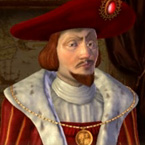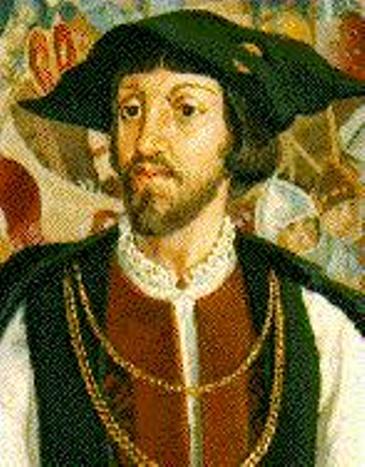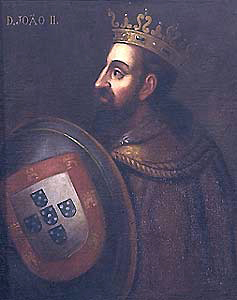They are all better than Phillip II!
Somebody would argue none of the Medieval kings are real "Spanish" kings, as they just ruled a part of Spain. Indeed, trying to portray a Castilian king as a king of spain will piss-off many of the non-castilian spaniard
Heh, i bet even the castle used for "spain" flag in CivIV or Medieval-Total War is not really well received for non-castilian spaniards -- including leonese. St.James Cross, Burgundy Cross, Calatrava Cross, or the Hercules pillars (with plus ultra motto) woudl have been much better.
I won't mind having Alphonse VIII of Navas, Alphonse X the Wise (you repeated him

), or James I of Aragon, the Conqueror, as they were influential through all the Iberian peninsula... yet they none of them did rule all spain. Leovigild and Reccared, yes, but some could argue we are talking about a diferent civilization there.
Back to Philip II topic, I still think you are seeing him trough quite dark glasses, objectively:
-He kept the Turks in check in the Mediterranean. True, he did not better the situation against them, but it did not got worse either, and at that time the Turks had probably
-Attached Portugal to Spain, getting the first worlwide empire. (And, maybe more important even in the mindset of these times, the Iberian unity wich Izzie and Ferdinand started to forge - yes, it was short lived afterwards, but it was already its grandson who lost it, thus Philip )
-Even if at grand cost, maintained all the scattered positions of Spain in Europe (Milan, Naples, French-Compte, Flanders) against France. After the peace of Chateau-Cambresis, spanish hegemony over France was recognized.
-Better or worse, he was the one to first organize the Spanish administration, a task left to do by his father Charles I/V and his grandfather Philip I - Note Izzy and Ferdinand keept separate administrations for Castille and Aragon. -- And also, he was the one to provide an organization for the Spanish possesions around the world.
-Compared with his son and grandson (and much other kings in the era - see Louis XIII and XIV of france, i.e.), he took personally the task of leader, and did not delegate all power
in one person (as afterwards, Lerma, Olivares, Richelieu or Manzarino would have). Contrarly to the image of stubbornes some "black legend" historians seem to reflect on this, he often searched the advice of counselors and courts before taking the decisions.
-As an humanist monarch, fostered the arts and sciences.
On the other hand
-He was, now trully stubbornly, convinced Catholicism could be the only religion of his kingdom. Maybe he could have used a bit more flexibility here.
-He dealt with internal problems in Granada (with the moorish) and Aragon, yet that was not uncommon in these times for any leader.
-He increased greatly the debt of Spain, indeed probably a bad move. Yet I guess it was seen as an "investment" in getting a position of power that will allow to recover the expenses in later times. Did not work, due to decrease on the prices of gold and silver (market laws were not that know at these times), even if these -even with piracy around- keept flowing to spanish treasury much time afterwards.
- He indeed managed a fiasco with the Armada. Yet -as Rocroi would be some years later- the defeat was not that big regarding overall power of spanish Navy for the first (and Army for the second). Both defeats were, however wisely used by anti-Spanish propaganda. And indeed, probably the victory over the "Invencible" (name that - take into account, were the english who gave as a propaganda plus) gave wings to England in is quest for world supremacy over spain.
Pluses and minuses taken into account, he cannot be considered a 100% good leader, I agree, but in my opinion he is a fair leader, with a bunch of shadows, but that can keep in pair with many of the leaders already portrayed in Civ. He is as well much more known worlwide and to the common mortal (not the history fan) than, let's say, Olivares or Alphonse VIII, what gives him a point as well in the "Civ Entry" qualification.
Note: Breunor, I checked some of your links while writting all this, and indeed with these sources, I underestand your position. Yet -having consulted few english sources on Philip II myself before- I have to say I was greatly surprised by the negativity of most of these sources. Even the timeline, which you portray as "objective", I'd say is quite biased to pointing and developing the "bad" entries in Philipp II reign. If historic material is so polarized about this king, I guess it will be difficult to reach a final agreement.
 ), or James I of Aragon, the Conqueror, as they were influential through all the Iberian peninsula... yet they none of them did rule all spain. Leovigild and Reccared, yes, but some could argue we are talking about a diferent civilization there.
), or James I of Aragon, the Conqueror, as they were influential through all the Iberian peninsula... yet they none of them did rule all spain. Leovigild and Reccared, yes, but some could argue we are talking about a diferent civilization there.








 ) are XX century recreations and neither is even close of the oldest known representations of D. João II:
) are XX century recreations and neither is even close of the oldest known representations of D. João II:




